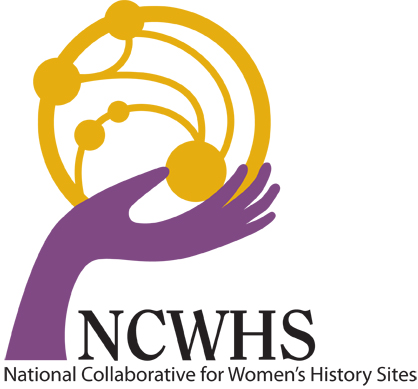Sponsored by the National Collaborative for Women’s History Sites, the National Votes for Women Trail seeks to recognize and celebrate the enormous diversity of people and groups active in the struggle for women’s suffrage.
The Trail consists of two parts: 1) a database with digital map and 2) a program of historical markers for about 250 women’s suffrage sites across the country, funded by the William G. Pomeroy Foundation and the federal Women’s Suffrage Centennial Commission .
Through crowd-sourcing, the database and digital map collects sites from all over our country to tell the story of suffrage for all women, of all ethnicities, classes, and geographic areas, from the colonial period to the present. The National Votes for Women Trail currently has over 2,400 sites on its database. If you would like to participate in adding information to our map, we welcome you! Your involvement is essential to our success! Please visit our “Get Involved” page .
In partnership with The William G. Pomeroy Foundation and the federal Women’s Suffrage Centennial Commission, the National Votes for Women Trail also promotes a program of historical markers to commemorate the people, places, and events important to passage of the Nineteenth amendment in 1920. These markers are based on extensive research in primary sources and represent the diversity of places, events, and people of the suffrage struggle. For resource ideas, see https://ncwhs.org/tresources/.
Each state has a coordinator who works with local people to research sites significant to the story of women’s suffrage at the national or statewide level. Markers represent the geographic, ethnic, class, religious, and gender diversity of the suffrage movement in each state. All marker nominations must be approved by coordinators for each state, by the National Votes for Women Trail’s scholarly advisory committee, and by the Pomeroy Foundation. For further information, see the Pomeroy Marker toolkit.
Anchoring the story of women’s suffrage in specific historic sites brings to life the enormous grassroots commitment all across this country to voting rights for women as citizens of the United States. Women’s suffrage was indeed a national struggle, part of the ongoing struggle for voting rights for all U.S. citizens, including African Americans, Asian Americans, Latinos/as, indigenous people, people from farms as well as cities, rich as well as middle class and working class, people of all religions, men as well as women. By honoring the work of hundreds of thousands of participants in the movement for women’s suffrage, this project shows how social change happens through citizen action and inspires future generations to treasure their right to vote.
